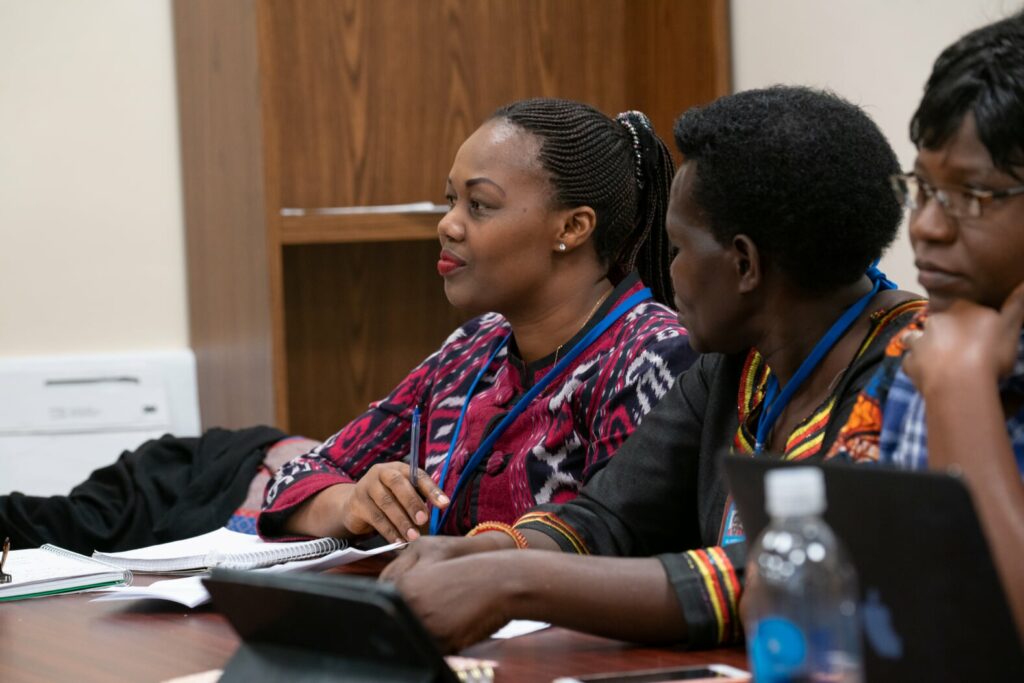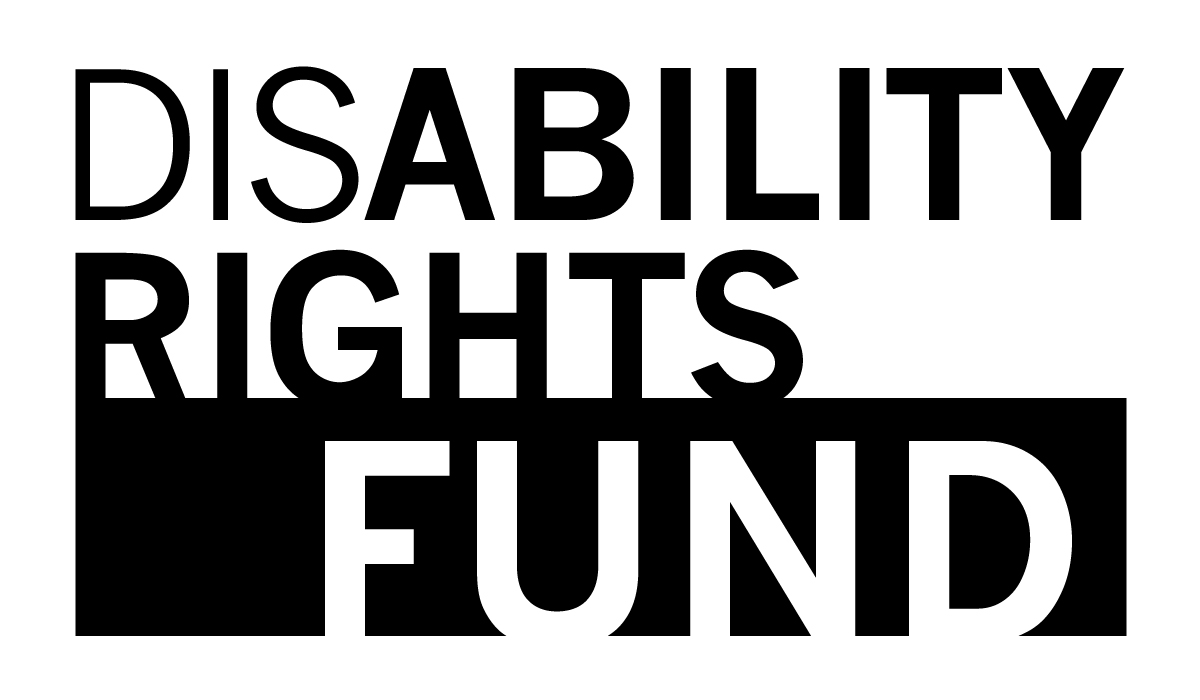What barriers do women with disabilities face in accessing justice? In "Empowering the Voices of Women and Girls with Disabilities Towards a Just Society," we share the voices of women with disabilities from Rwanda, Uganda, and Zimbabwe who voiced their struggles and best practices at the 63rd Commission on the Status of Women.

At the 63rdCommission on the Status of Women held March 2019 in New York City, women with disabilities joined their fellow women activists to share their stories with the women’s rights movement. The common theme throughout the week was that they, as women, wanted to be viewed as equals in the women’s movement and in society. Listening to various women with disabilities speak, it was easy to see that greater strides towards more inclusion are still sorely needed.
These voices came together at the Disability Rights Fund/Urgent Action Fund – Africa’s parallel event, “Towards More Equitable and Just Public Institutions.” To date, a large part of the discussion about women with disabilities has focused on raising awareness about the high rate of violence and human rights violations that women and girls with disabilities face.
The horrific fact is that women and girls with disabilities are two to three times more likely to experience gender-based violence than women without disabilities (UN Department of Economics and Social Affairs).
Without access to justice, women and girls with disabilities will continue to have their rights and safety violated. The parallel event directed the conversation towards action by asking, “What are the barriers to accessing justice and what can we do about it?”
DRF invited Robinah Alambuya, Executive Director for Triumph Uganda, an organization supporting those with psychosocial disabilities; Mathilde Umuraza, Founding Board Member of the Rwandan Organization of Women with Disabilities (UNABU); and Agness Chindimba, Founding Director for Deaf Women Included (Zimbabwe) to speak at the event. These African women with disabilities shared their voices representing three different countries, three different disabilities, and three different perspectives. While they shared different perspectives on accessing justice, Robinah noted that “Women with disabilities, whether from different countries or different categories, with the barriers we face, many times will still connect [with each other].”
Though women with disabilities feel a connection with each other, they feel a disconnect with the overall women’s rights movement. Tariro Tandi, of Urgent Action Fund – Africa, shared that, as a funder, they realized that they have left behind women with disabilities who have been less able to access UAF’s resources. In starting to fund organizations of women with disabilities, such as Deaf Women Included Zimbabwe, UAF realized that women with disabilities have not been allowed to speak for themselves and that the justice system is not friendly and certainly not disability-friendly. She says that:
“We realized that there was a need to prioritize women with disabilities in ensuring that like all other women who are fighting for access to justice, access to resources, women with disabilities [should] also have the same opportunity or enjoy the same opportunities as every other woman because before a woman is recorded as a woman with a disability, she is a woman.”
What are the barriers to accessing justice?
Communication Barriers
For Deaf women and girls in Zimbabwe, Agness noted the significant communication barriers they face. She shared her own difficulty in trying to bring her story to CSW, while her sign language interpreter was denied a U.S. visa to accompany her. Without her sign language interpreter, Agness struggled to share her voice and develop connections – connections that would be valuable in her fight for justice. In Zimbabwe, there is often a lack of qualified sign language interpreters in the justice system, and when they are available, it is only in larger cities, creating an even greater issue for women and girls with disabilities in rural communities. Furthermore, not every Deaf woman has had access to an education and therefore, may not necessarily know the formal Zimbabwean Sign Language. Their own home-based sign language is not accepted in a court of law.
Lack of Knowledge about Legal Systems and a Biased Justice System
Both Deaf women and women with psychosocial disabilities usually lack an understanding of how the legal system works. Rather than being supported, they are judged.
The bias of courts against people with disabilities is one that Robinah says has prevented justice for women with psychosocial disabilities in Uganda. In a court of law, having the negative label of “an unsound mind” means that women with psychosocial disabilities are stripped of their legal capacity. Robinah says that this means “we cannot enjoy access to justice on an equal basis with others.”
Attitudinal barriers from society
Attitudinal barriers from society are also cited as a barrier to accessing justice, as having a psychosocial disability is viewed by some in society as a punishment from God for some sin that led them to be “afflicted.” More negative attitudes are attached to various myths about women with disabilities and their sexuality – that women with disabilities are asexual or hypersexual or that sex with them can cure diseases like HIV. This has contributed to their being subjected to sexual harassment and sexual exploitation.
Women with disabilities in Rwanda, especially for those in rural communities, face a greater challenge to accessing justice. Mathilde of UNABU shared that for women in Rwanda, there is a social norm that says:
“In our society, we’ve got a picture of who a woman should be. She has to be somebody who can walk up and down, do the field work, she has to be beautiful and have children and raise them appropriately. So, in general, most of the women with disabilities are not fitting into this framework.”
Such a viewpoint about what the “ideal” rural woman is has caused many to view rural women with disabilities as less of a woman. Mathilde shares how she challenges this social norm:
“Our work is to convince the community, women’s organizations, and women with disabilities, that Women with Disabilities do still live, and face the same challenges as any woman in the community. But they are only aggregated by the understanding that they have some disability.”
Devastating Dependency
Mathilde also shared that a barrier for Rwandan women with disabilities is a reliance on others. Most Rwandan women with disabilities do not have the opportunity to go to school which leads to their dependency on family members and service providers for their well-being, care, and connection to the outside world. In many cases, those who perpetrate violence against women and girls with disabilities are the very ones who are entrusted with their well-being. When facing the choice of speaking up or keeping one’s silence, the fear that speaking out will result in a loss of support is greater than the fear of living with the violence.
How Do We Fight Injustice?
Agness said “…the CRPD’s first article says that everyone is supposedly equal before the law, but in reality, are we all equal?”
Best practices towards righting injustice include connecting women with disabilities with legal aid, reforming justice systems to make them more disability-friendly, enabling victim-friendly support services (including in rural communities), teaching court officials/police officers sign language, translating laws into various languages and providing large print versions for those with visual impairments, working with the larger women’s rights movement towards inclusion, and using the CRPD as a tool to advocate for all of this.
Robinah and Triumph Uganda add that a simple but very powerful approach is reminding people to use love, as she says, “It is something we have, each one of us, you have it, you either choose to give it or not to give it. It is in you as a human being.”
 Love is what Triumph uses to combat stigma, discrimination, injustice and barriers that women with psychosocial disabilities face. Peer support groups where women with psychosocial disabilities share self-acceptance and remedies help empower women and girls to share their stories with one another. This environment of openness in a safe place creates self-advocates who can lift up their voices to address violence.
Love is what Triumph uses to combat stigma, discrimination, injustice and barriers that women with psychosocial disabilities face. Peer support groups where women with psychosocial disabilities share self-acceptance and remedies help empower women and girls to share their stories with one another. This environment of openness in a safe place creates self-advocates who can lift up their voices to address violence.
Mathilde stressed the importance of building alliances and coalitions, emphasizing that “the work at the community level cannot be obtained without partnership and work at the national level.”
Women activists in the room were called to action to join the fight with Robinah, Mathilde, and Agness towards a more just and equitable society for women and girls with disabilities. DRF/DRAF Executive Director, Diana Samarasan, called upon “all of you in the women’s rights field to please, help your sisters who are women with disabilities to find voices, make inclusive spaces, and set up their own organizations to gather funding to support their work as they move forward.”
For more information about women with disabilities, Read DRF’s Insights on Women with Disabilities Leading Change, our guide on Funding the Rights of Women with Disabilities, and our Gender Guidelines.
